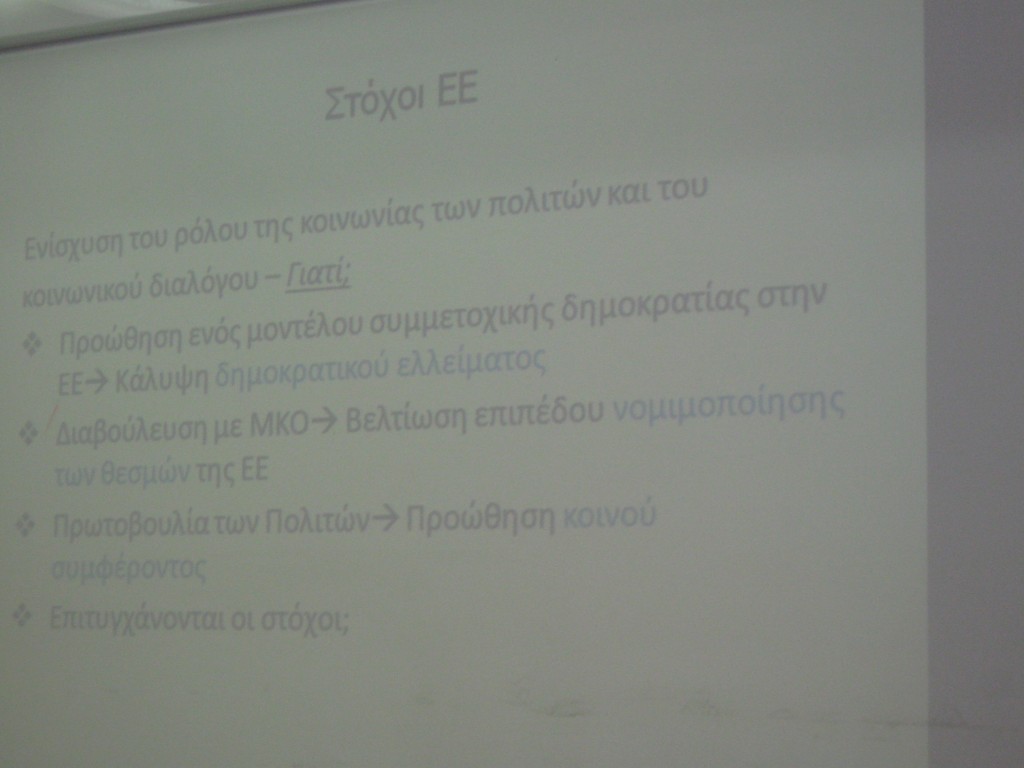1. EU Policies for Protection Against Discrimination
The aim of this postgraduate course is to examine the concept of discrimination and the principle of equality in EU law, starting with the free movement of persons and the protection of immigrants. Besides the nationality criterion, other criteria for discrimination are analysed such as race, gender equality (e.g. equal pay of men and women), religion and beliefs, disabilities, sexual orientation (LGBT) and age. Such criteria are based on the TFEU and the EU Charter for Fundamental Rights, EC Directives 2000/43, 2000/78, 76/207 etc. compared with the European Convention for Human Rights, UN International Conventions and Covenants, and national legislations e.g. in Sweden, Italy, UK, Greece etc, along with affirmative action. Further new discrimination criteria are examined such as schizophrenia, drug addiction and rehabilitation, obesity, genetic characteristics and social stereotypes.
2. European Legal Order and EU Policies
The course includes the constitutional structure of the EU, with emphasis on EMU and legislative procedures in practice, examination of specific directives and regulations, presentation of recent case-law on specific subjects (e.g. free movement of patients, sportsmen, students, researchers and human rights), and analysis of EU policies for integration, such as social and regional policy, education and life-long learning policy, environment and consumer protection, data protection, e-commerce, sustainable development.
